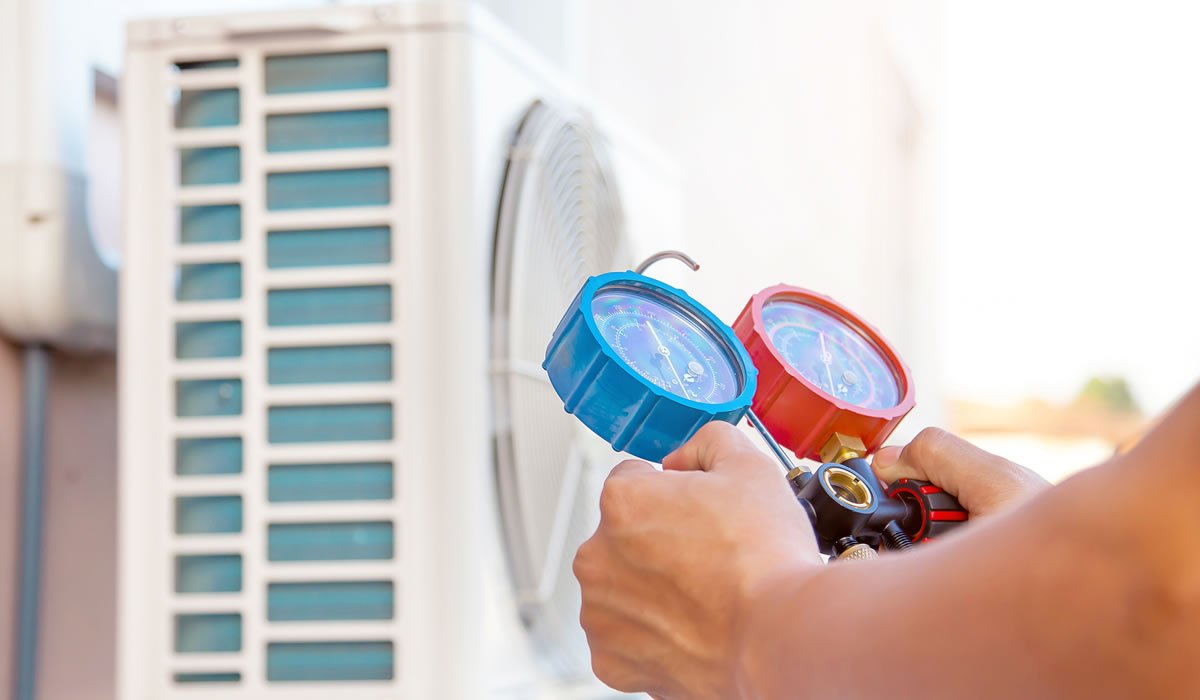As temperatures rise and the need for indoor comfort becomes paramount, air conditioning systems play a crucial role in keeping us cool. However, a common question that often arises is whether air conditioners use gas. In this informative article, we will dive into the mechanisms behind air conditioning and discuss the utilization of gas, along with exploring the emergence of smart AC solutions that are transforming the way we experience comfort.
Dispelling the Myth: Air Conditioners and Gas Usage
Contrary to popular belief, most traditional air conditioning systems do not use gas as a primary cooling agent. Instead, they rely on a refrigerant, which is a chemical compound that cycles through the system to absorb heat from indoor spaces and release it outdoors. This refrigerant undergoes a continuous phase change, transitioning between liquid and gas states to facilitate heat transfer.
The Refrigeration Cycle: How Air Conditioners Work
Air conditioners operate based on a fundamental principle known as the refrigeration cycle. This cycle involves four main components: the evaporator coil, compressor, condenser coil, and expansion valve. Here’s how the process unfolds:
- Evaporation: The refrigerant absorbs heat from indoor air as it evaporates within the indoor evaporator coil, transforming from a low-pressure liquid to a low-pressure gas.
- Compression: The compressor, often located in the outdoor unit, compresses the low-pressure gas into a high-pressure, high-temperature gas.
- Condensation: The high-pressure gas releases heat as it condenses into a high-pressure liquid within the outdoor condenser coil, expelling heat outdoors.
- Expansion: The high-pressure liquid undergoes a pressure reduction via the expansion valve, transitioning back into a low-pressure liquid and completing the cycle.
Smart AC Solutions: The Evolution of Cooling Comfort
As technology advances, air conditioning is undergoing a transformation, giving rise to smart AC solutions that offer enhanced convenience, energy efficiency, and control. These innovative systems leverage connectivity and automation to revolutionize how we experience indoor comfort.
Benefits of Smart AC Solutions
- Remote Control: Smart AC systems can be controlled remotely through smartphone apps, allowing users to adjust settings, change modes, and monitor energy consumption from anywhere.
- Energy Efficiency: Many smart AC systems come equipped with energy-saving features, such as adaptive temperature control and scheduling, which help optimize cooling while minimizing energy usage.
- Voice Control: Integration with virtual assistants like Amazon Alexa or Google Assistant enables users to control their AC units using voice commands, adding an extra layer of convenience.
- Learning Algorithms: Some smart AC systems learn from user preferences and adjust settings automatically to create a comfortable environment without constant manual adjustments.
Conclusion
To address the initial query—no, traditional air conditioners do not use gas for cooling; they rely on refrigerants in the refrigeration cycle. However, the cooling industry is embracing technological advancements that are changing the way we experience comfort. Smart AC solutions not only provide enhanced control and energy efficiency but also pave the way for a more connected and convenient lifestyle.
Whether you’re seeking the traditional cooling prowess of refrigerants or the cutting-edge convenience of smart AC solutions, the ultimate goal remains the same: to create a cool and comfortable haven in the midst of sweltering temperatures.
FAQs
1. Do air conditioners use gas for cooling? No, traditional air conditioners use refrigerants in the refrigeration cycle to facilitate cooling, not gas.
2. How does the refrigeration cycle work in air conditioners? The refrigeration cycle involves the transformation of refrigerant from a low-pressure liquid to a low-pressure gas through evaporation, followed by compression into a high-pressure gas, and then condensation into a high-pressure liquid, releasing heat outdoors.
3. What are the benefits of smart AC solutions? Smart AC solutions offer remote control via smartphone apps, energy-saving features, voice control through virtual assistants, and learning algorithms for automated comfort adjustments.
4. Are smart AC solutions energy-efficient? Yes, many smart AC systems come with energy-saving features that optimize cooling while minimizing energy consumption.
Zeeshan is a seasoned tech expert and senior writer at Teckrr.com. With over 10 years of experience in tech journalism, he brings insightful analysis and up-to-date information on the latest tech trends. Zeeshan holds a MBA degree from Business and Tech University and is known for his engaging writing style and ability to demystify complex tech topics. Stay connected with the cutting-edge of technology through his expert lens.

Leave a Reply